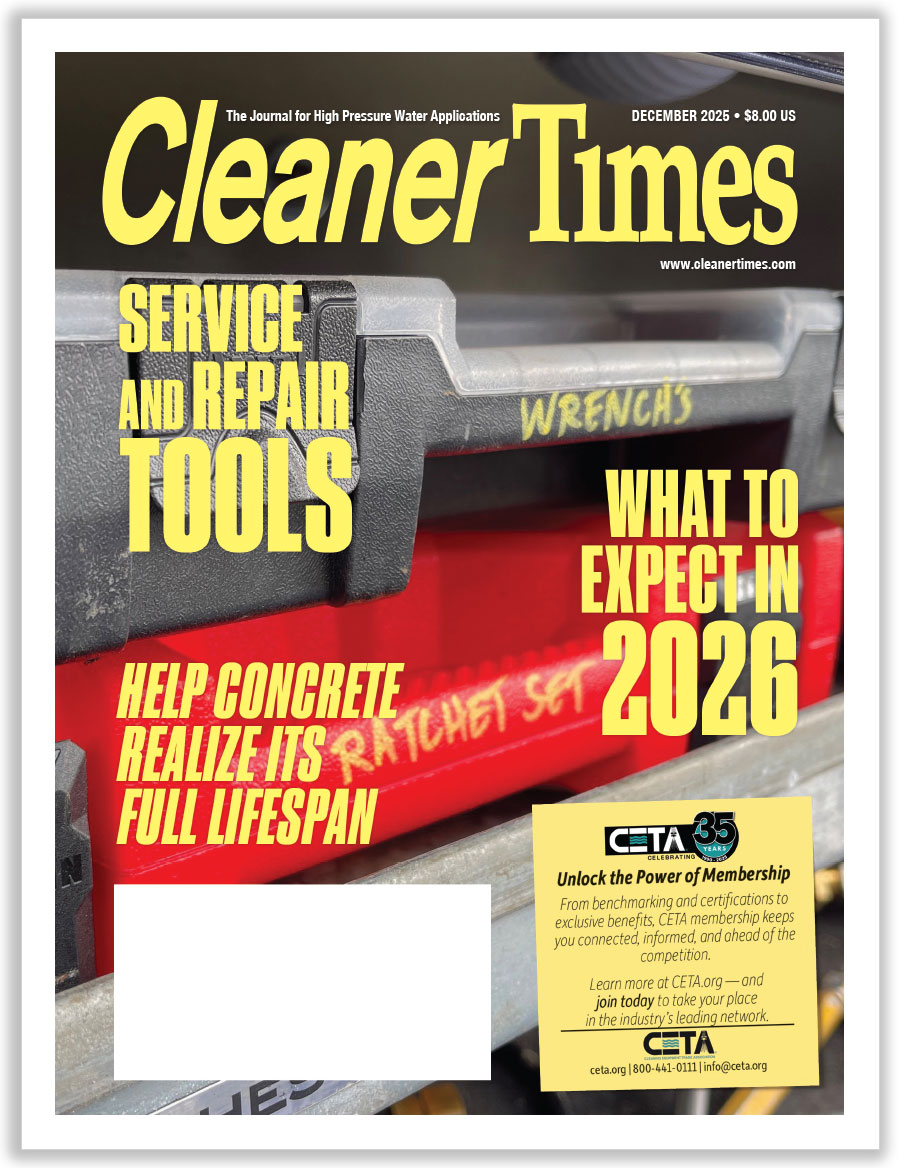
Challenges, Solutions, and Opportunities for New Business — Northeast U.S.
By Diane M. Calabrese / Published March 2018

R
egional Profile: Northeast
The U.S. Census Bureau divides the nation into four broad regions (Northeast, South, Midwest and Southwest). It names Maine, Vermont, New Hampshire, Massachusetts, Connecticut, Rhode Island, New York, New Jersey, and Pennsylvania as the nine states in the Northeast. (The U.S. Bureau of Labor Statistics (BLS) also puts Puerto Rico and the Virgin Islands in its Northeast grouping.)
In subdivisions created outside the Census Bureau, Maryland, Delaware, the District of Columbia, and occasionally West Virginia are considered part of the Northeast (Mid-Atlantic). Despite the absence of firm boundaries, we share an informal agreement about regions of the nation.
Across the next few months, we will profile regions of the country by taking in a ground-level view through the eyes of distributors and contractors based in the regions. The profiles will give members of our industry a way to know their more-distant neighbors a little better, as well as to learn about challenges—and solutions—in common. And perhaps some readers will identify opportunities for doing business in new areas.
Dennis Black, president of McHenry Pressure Cleaning Systems Inc. in Frederick, MD, gets us going. He reminds us that his experience derives from the specific region—Maryland, Washington, D.C., and northern Virginia—that his company serves.
“We do not have a dominant industry that other regions have, such as oil fields, logging, farming, etc.,” says Black. That means “the booms that some regions may see” are absent. “The plus side is we also do not see the lows such as with the oil industry.”
The weather is a defining factor in the Northeast, says Black. “We have four seasons and must deal with the cold and its corollaries and a shorter wash season than some regions.”
There are a lot of people in the Northeast, with some one-fifth of the U.S. population residing there. “We do not have to travel as far as some distributors for business,” says Black. “The downside is our traffic is congested and time consuming.”
Density of the population in the Northeast is the highest of any region. It coincides with many different types of economic activity. “We do have a diverse market that has a sampling of a lot of different industries and markets,” says Black. “This usually provides a good customer base to work with.”
Being so close to the center of federal government brings work from the same. “A portion of our business depends on the government,” says Black. “So, we have all the volatility that goes along with dealing with the government.”
Finally, there are the costs. “It is expensive to do business in our market,” says Black. “Taxes, regulations, and tolls” contribute to the costs.
Balance Needed
The distinct seasons that characterize the Northeast demand a strategy for survival. “A contractor in the Northeast has to know how to squirrel away money to get him or her through the down time,” says John Tornabene, owner of Clean County Powerwashing in Kings Park, NY. “Trying to find winter work for power washing can be tough, but there are avenues to explore, such as ice-dam removal and de-icing truck scales, that we’ve done in the past.”
A contractor who works to achieve an equilibrium is doing more than sustaining his business. “A lot of
contractors cut back spending in the winter months because of the cold weather,” says Tornabene. “This can hurt the distributor’s bottom line if they don’t sell snow blowers and other machines, and don’t sell pressure washers nationally.”
The notion of balance when working in the Northeast region must be understood fully. “We can book work like crazy in the summer months because that’s when all the residential customers, at least, want everything done,” says Tornabene.
The high-income level in some states is a plus. “For contractor services, you can make excellent money in some of the Northeast states because the average income in some of these states is higher than most other areas of the country,” says Tornabene.
According to the BLS, the North-east has the highest percentage of workers employed in professional and related positions, which tends to make them higher earners. It tops other regions with more than 40 percent of the working population in such positions. To be fair, however, the regional profiles on this value differ little, with other regions being just a few percentage points behind the Northeast.
Ultimate balancing of a sort is what Dennis Sahr, owner of Spray Force LLC in Concord, NH, does. He also has a component of the business that operates in the Sunshine State.
“Here at our company we have offices in Florida and New Hampshire, with our main seasons being in New Hampshire from mid-April until mid-October, weather permitting,” says Sahr. “Serving our Florida customers in the winter season, we provide soft-wash roof cleaning, house washing, surface cleaning, stain and graffiti removal, and deck cleaning and restoration.”
The balance required also extends to understanding unique perspectives of residents. The Granite State where Sahr is based belongs to the part of the Northeast commonly called New England.
“The New Englander by nature is a hardy lot,” says Sahr. “They would prefer to do most chores by themselves.” When someone in the northern tier of the Northeast does hire, he explains, they look for a contractor who shares their work ethic. “With that said, they are very loyal customers, and the best ROI [return on investment] is word of mouth.”
Part of the challenge in the area of the Northeast where Sahr’s company works will be familiar to all. Many prospective customers do not know what a contract cleaner can do for them. “For roof cleaning in particular, most people do not know that roofing material can be cleaned, believing that it must be replaced,” he explains.
“New Englanders by nature are very hard workers with a keen eye on the environment,” says Sahr. “Although very frugal, they don’t mind spending a dollar if they get a dollar worth of service or product in return.”
Stretch Required
The Keystone State typically experiences a shorter winter than the states in New England, but winter can be long and harsh, with snow measured in feet. “You have to think outside the box and implement solutions that allow you to operate in any climate,” says Cliff Reed, the owner at Hydro-Spray in Clearfield, PA.
“I think distributors get comfortable selling products and not solutions, and this trickles down to the contractors in that they are only going to be as good as the people and vendors around them,” says Reed. His company aims to sell both solutions and products.
“What makes our company different from most other companies in the industry is our ability to offer customized solutions to meet the various needs, including being able to operate in any climate and condition consistently,” says Reed. “I think contractors and distributors who work well in the gray area and outside the box are the ones who are growing and successful.”
A “one-size-fits-all” approach is something Reed rejects, he explains. Distributors and contractors must tap their experience and boost their education to find creative ways to meet every challenge, whether it is winter or a downturn in the economy.
Couple engagement with imaginative approaches, advises Derek Nordman, owner of Tri-State Power Washing in Woodstock, CT. “Our washing season is sometimes so small that we really have six or seven decent months for washing,” he explains. “This means we need to create a lot of value for our customers, and we have to be versatile with our services.”
Maneuvering around weather works well, says Nordman. “A lot of customers who have homes we wash during the spring will have our company come back in the fall for gutter cleaning, and possibly even throw in snow management in the winter. For us, it’s about creating the most value for our customers in the short amount of time we have to wash for them.”
Construction materials and type of construction used in the Northeast differ from other regions of the country. In the Nutmeg State, where Nordman is based, the houses are predominantly vinyl sided, he explains. There is some cedar shake, and there is some wood siding.
“There is very little brick or stucco,” explains Nordman. “The majority of roofs are asphalt shingles due to the cold. Flat work in the residential sector is scarce. Sure, we have the occasional pool deck, but concrete driveways are almost nonexistent. Overall, the biggest difference I have noticed is just in the types of material we are washing.”
Summing It Up
A densely populated region with great diversity in economic activity, the Northeast features great fluctuations in weather across the year. There are plenty of opportunities for members of our industry, although work may be concentrated in six or seven months. Water is plentiful and rarely rationed, and there is a large potential customer base with the financial means to contract for services.





